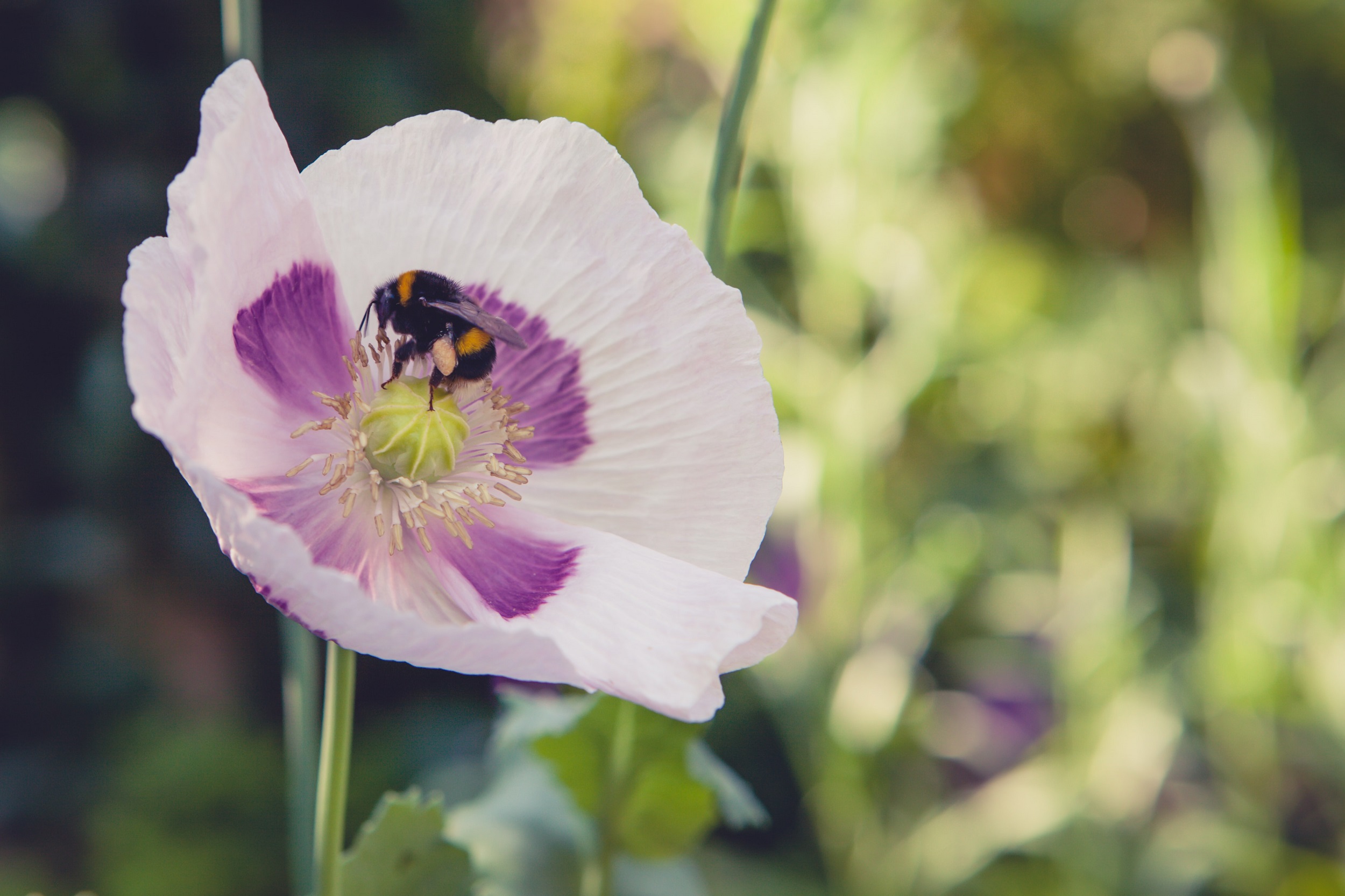Could honey solve your seasonal allergies?

Photo by Christine Wehrmeier - Accessed on Unsplash
April showers bring May flowers. Days become longer, weather becomes warmer, there’s more sunshine, and the grass gets greener. Spring is on its way and I am ready. Bring on the sun, the breeze and even the pollen of sorts. With my sweet local honey in hand, I have found my remedy in dealing with seasonal allergies.
Seasonal allergies, or SA, are known by the common name of hay fever and the more technical name, allergic rhinitis. Springtime is the time when many plants produce pollen. Pollen is a tiny powder-like substance plants release. The pollen is then carried off by insects or by the winds for pollination and plants are reproduced. As pollen is released into the air, it gets into you when you breathe it in.
Sufferers of SA have an immune system that is overactive and sees the pollen as a dangerous invader, otherwise known as an allergen. The symptoms you suffer each spring is actually a case of mistaken identity. The body classifies the pollen as a threat and triggers a reaction by releasing a chemical, called histamines. It’s the histamines which in turn causes the common SA symptoms of congestion, sneezing, runny nose, and watery eyes: all this is an attempt to rid your body of the pollen.
But could something as simple as honey be the sweet remedy for sufferers of SA? The idea isn’t so far fetched. I too once suffered this springtime misery. I had my fair share of sneezing, nasal congestion and a nose that would not stop running. For a while, a mountain of tissue took up resident in my garbage can. I really couldn’t survive a day without taking some kind of over the counter allergy medication. Despite the medication (anti-histamines) working, I was in search of a more natural way to find relief.
You see, honey can contain traces of flower pollen, an allergen. As bees pick up the nectar of flowering plants, they climb around the flower and also pick up the pollen from their environment. This is the same local pollen that may be causing your SA.
The idea behind honey treating allergies is similar to that of a person getting allergy shots. When you go to an allergy clinic for these shots, you are actually slowly building up your tolerance to the allergen contained in the shots. In some people, the allergy can be alleviated altogether.
When a person consumes local honey, they ingest local pollen. Over time, regular exposure to this pollen can cause a person to become less sensitive, and experience fewer or milder SA symptoms. Much like allergy shots, the honey works to gradually desensitize your SA. And that’s all there is to it. Sweet!
But is it a remedy? This question is actually more controversial than you might think.
On one side, there are allergy doctors and drug companies who are skeptical, arguing while it is true that bees pollinate flowers and make honey, the problem lies within the amount of pollen and the kind contained in the honey.
For example, when you consume local honey there is no way of knowing how much pollen there is. Whereas, allergy shots have known amounts of pollen and have progressively increasing measurements.
Another point of controversy is that the pollen in local honey is mostly from flowers where bees harvest the nectar. Flowering plant pollens are not generally linked with SA. The main culprits of SA tend to be airborne pollen from trees, grasses and weeds, which are not pollinated by bees.
On the other side are many thousands of testimonials from people who have tried it and say it is working for them. Full disclosure, I am one of those people. Tried and true for me. I no longer suffer the springtime misery as I once did.
So what about the research? From what I could find, there have only been two well-designed research studies examining honey and its effect on SA. In 2002, a study conducted by the University of Connecticut found no evidence that local honey relieves SA. Then published in 2013, a 2011 study conducted in Malaysia found honey consumed in high doses did indeed improved a person’s allergy symptoms.
Despite the research, we are no further ahead. If anything, there’s a consensus across both groups that more research is needed to conclude the role of honey and its effects on SA.
For some, it may appear that honey may just be a sweet placebo. And though it may be, that doesn’t stop me from using a dollop in my tea or oatmeal. For me, I know a spoonful of honey will make this allergy season better for me.
It is worth mentioning. In any case, you should NEVER give honey to children under the age of one, because raw/unpasteurized/unprocessed honey has the risk of botulism, a rare but serious form of food poisoning and can lead to severe illness and even death.
Also, for people who have a severe allergy to pollens and/or bees, ingesting honey can cause serious allergic reaction known as anaphylaxis. Therefore you should NOT consume raw/unpasteurized/unprocessed honey.
But placebo or not, honey might be a source of sweet relief
